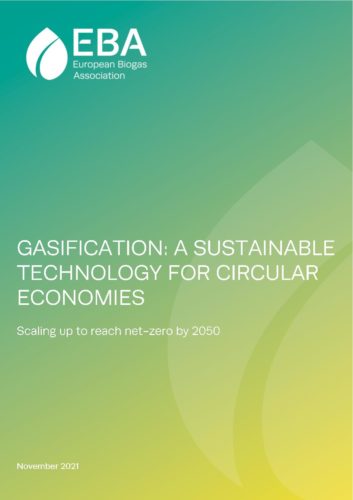Gasification – A Sustainable Technology for Circular Economies

Scaling up to reach net-zero by 2050
The paper provides a comprehensive analysis of the strong potential of gasification technologies to accelerate the net-zero responsibilities of the European waste, energy, hydrogen, and biofuel markets. By producing cleaner energy, biochar and biofuels from biomass and wastes, gasification is a key enabler to decarbonize EU energy consumption.
Gasification is a highly promising and already commercialised technology ready to scale-up. The market for gasification of fossil, biomass and waste resources was valued $479bn in 2019 and is projected to reach $901bn by 2028. Its success and ability to scale to become the waste-to-energy/fuel method of choice depends on the levels and type of political, policy, economic and commercial support. This support will allow for higher cost reductions and raise awareness of its strong potential to accelerate the EU’s net-zero responsibilities for waste, energy, and fuel markets.
Gasification can support the realisation of the circular economy. It has the potential to turn waste, which is often lacking better disposal methods, into value and profitable revenue streams. This if beneficial for forest wood owners and producers and for investors. It brings also a new range of opportunities for collectors and producers of other waste types, including biomass, municipal and non-hazardous industrial and commercial waste.
Gasification can also contribute to reducing carbon emissions as part of the net-zero roadmap. Indeed, gasification plants have the potential to produce not only renewable energy, but also carbon-rich materials that can serve as stable carbon sinks. Gasification technologies offer the opportunity of being low carbon, neutral or even negative carbon emissions.

